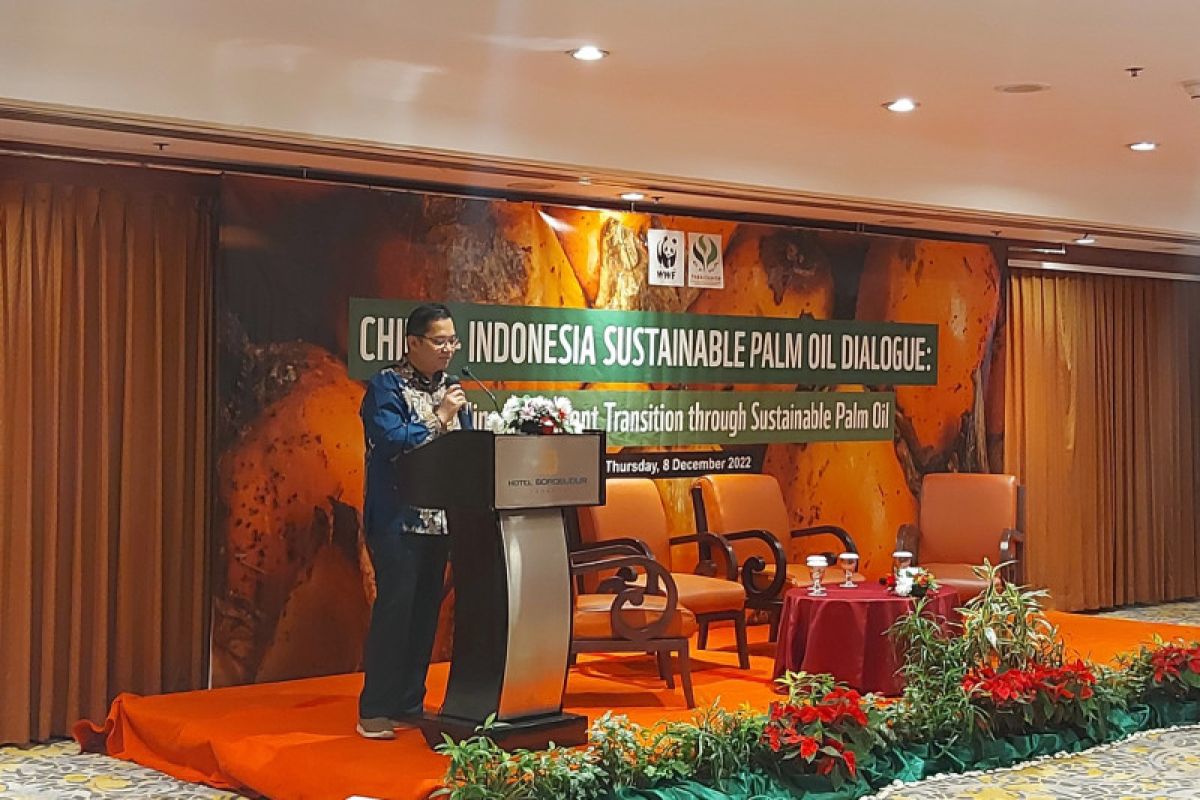This is also appropriate in the context of how palm oil from Indonesia can comply with and also ensure these interestsJakarta (ANTARA) - The environmental organization World Wide Fund (WWF) is encouraging sustainable palm oil trade between Indonesia and China given its relatively large volume and impact on the sustainability of agricultural production and the environment.
China is one of the largest markets for Indonesian palm oil exports, making up 17.7 percent of its total crude palm oil (CPO) exports, WWF Indonesia executive director Aditya Bayunanda pointed out at the “China-Indonesia Palm Oil Dialogue” here on Thursday.
Hence, the WWF is encouraging exports of palm oil and its derivatives from Indonesia to China, specifically palm oil products made using sustainable principles.
"Regarding trade and palm oil, we must remember the ways we can protect our environment," said Bayunanda.
"This is also appropriate in the context of how palm oil from Indonesia can comply with and also ensure these interests," he added.
He then outlined several issues surrounding Indonesian palm oil production, including the clearing of forest land for plantations, the issue of workers being paid substandard wages, and other issues.
The Ministry of Agriculture is implementing the Indonesia Sustainable Palm Oil (ISPO) certification policy for business actors or farmers who are applying sustainable principles.
Related news: GAPKI optimistic of palm oil industry protecting economy from crisis
Therefore, the WWF said it hopes that palm oil products and their derivatives exported to China can get ISPO certification, or even RSPO (Roundtable on Sustainable Palm Oil), which is commonly used internationally.
The WWF is ready to provide education on and promote sustainable products, especially palm oil, Bayunanda said.
"We are ready to promote sustainable trade and imports of sustainable palm oil from Indonesia to China," he added.
Related news: APINDO seeks consistent support over established palm oil policies
Meanwhile, a representative from the Chinese Chamber of Commerce and Industry (CFNA), Chen Ying, said that the Chinese people are not used to sustainable palm oil products and do not understand what they mean.
Sustainable CPO products and their derivatives have only become a concern of big industries.
However, Ying said that the Chinese people have begun to adopt a green lifestyle, that is, consume sustainable products.
Therefore, the potential for marketing sustainable palm oil products is still huge and will need to be tapped by educating the public to make them aware of the importance of protecting the environment and consuming sustainable products, he added.
"China is pushing for sustainable products and green consumption recently. People are willing to pay more for organic food or a green lifestyle. Sustainable palm oil has market potential," said Ying.
Related news: Palm oil firms should forge collaboration with farmers: Ministry
Related news: 3.4 mln hectares palm plantations in high conservation areas: govt
Translator: Katriana
Editor: Fardah Assegaf
Copyright © ANTARA 2022












